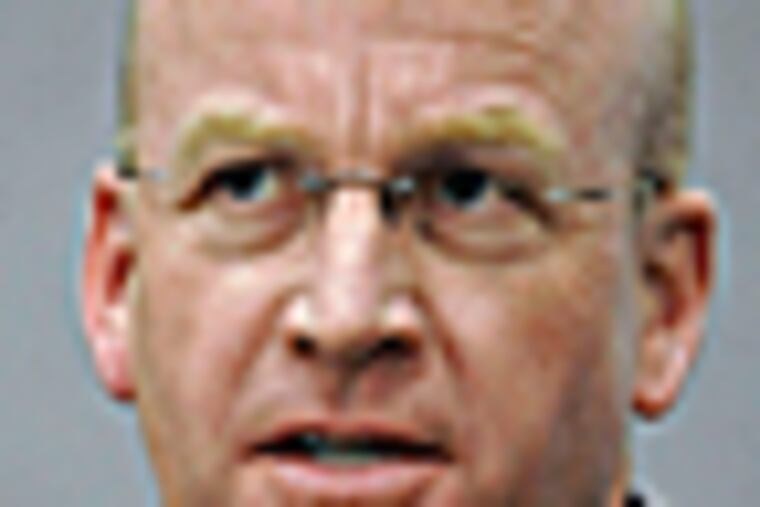Montco commissioners face a continuing budget dilemma
The Montgomery County commissioners inched closer to solving their historic budget crisis - which could result in programs being eliminated, about 500 people being laid off, or taxes increasing up to 28 percent - after listening to pleas for more money from department heads.

The Montgomery County commissioners inched closer to solving their historic budget crisis - which could result in programs being eliminated, about 500 people being laid off, or taxes increasing up to 28 percent - after listening to pleas for more money from department heads.
Most of the administrators said they could not live with the 5 percent to 11 percent cuts needed to close a $44.5 million budget gap, the largest the county has ever faced. County President Judge Richard Hodgson said such cuts to the courts' budget would bring the court system "to its knees."
"There simply are not further areas that can be reduced," he said of the courts, which will have 23 judges next year.
It was the first budget hearing since Commissioner James R. Matthews, 62, was indicted by a grand jury for purportedly lying to a grand jury regarding corruption in county government.
Following his Dec. 6 arrest, Matthews resigned as chairman and was replaced by Joseph M. Hoeffel 3d, who was also cited in the report for meeting with Matthews in private to discuss county business before they voted at public meetings. Hoeffel has not been charged with any crime stemming from the report.
In recent years, the two had formed a bipartisan alliance against the third man on the panel, Bruce L. Castor Jr., the former district attorney. Castor, who has fought bitterly with Matthews, appeared happy with the new dynamic.
The report also criticized the county government, which it alleged often ignored its own procurement policies, recklessly spent taxpayer money, and rewarded political cronies.
Matthews said little at the meeting other than to repeat his vow not to vote for any budget cuts. His proposal would require a 28 percent tax increase, or about $120 a year for a typical household.
"We've been on a tax holiday for 120 months," he said, referring to the county's streak of not raising taxes. "That's an average of $1 a month."
Without it, he warned, entire departments such as county parks would be eliminated, and revered institutions such as the Elmwood Park Zoo and the Norristown library could be closed.
But his colleagues had other ideas. Still, they listened to department leaders beg, cajole, and, at least in one case, badger them for more money.
Hodgson said his department had requested a nearly half-million-dollar increase in its budget, but he conceded that keeping funding at 2011 levels rather than chopping "would stave off dire consequences."
And so it went, as person after person pleaded with the commissioners to put away the budget ax. A few said they could live with a 5 percent cut but not a penny more.
"We'll have to go with Castor's suggestion that we outlaw dying on the weekends," said Walter Hoffman, the county coroner, when asked how his department would fare with a leaner budget. The only way to get by would be to raise the cost of cremations, he said.
The most desperate was Ann Thornburg Weiss, the clerk of courts, who said a 5 percent cut would mean laying off employees.
"I can't do that and continue to run a functioning Clerk of Courts Office," she said.
She said her office had been understaffed for four years, resulting in a "significant, unacceptable backlog."
It all seemed to fall on deaf ears.
The three men held fast to their starting positions, with Matthews saying he would not even discuss budget cuts, Hoeffel looking to cut spending 5 percent and raise taxes about 11 percent, and Castor, the only commissioner who will serve on the newly elected board taking office in January, wanting to give the new commissioners the final say. Beyond Castor, the new board will be made up of Democrats Josh Shapiro and Leslie Richards.
Castor suggested a fourth option to the three budgets on the table - cutting spending 5 percent for all required departments and programs, and funding the others for only the first three months of the year, so that the new board could then amend the budget.